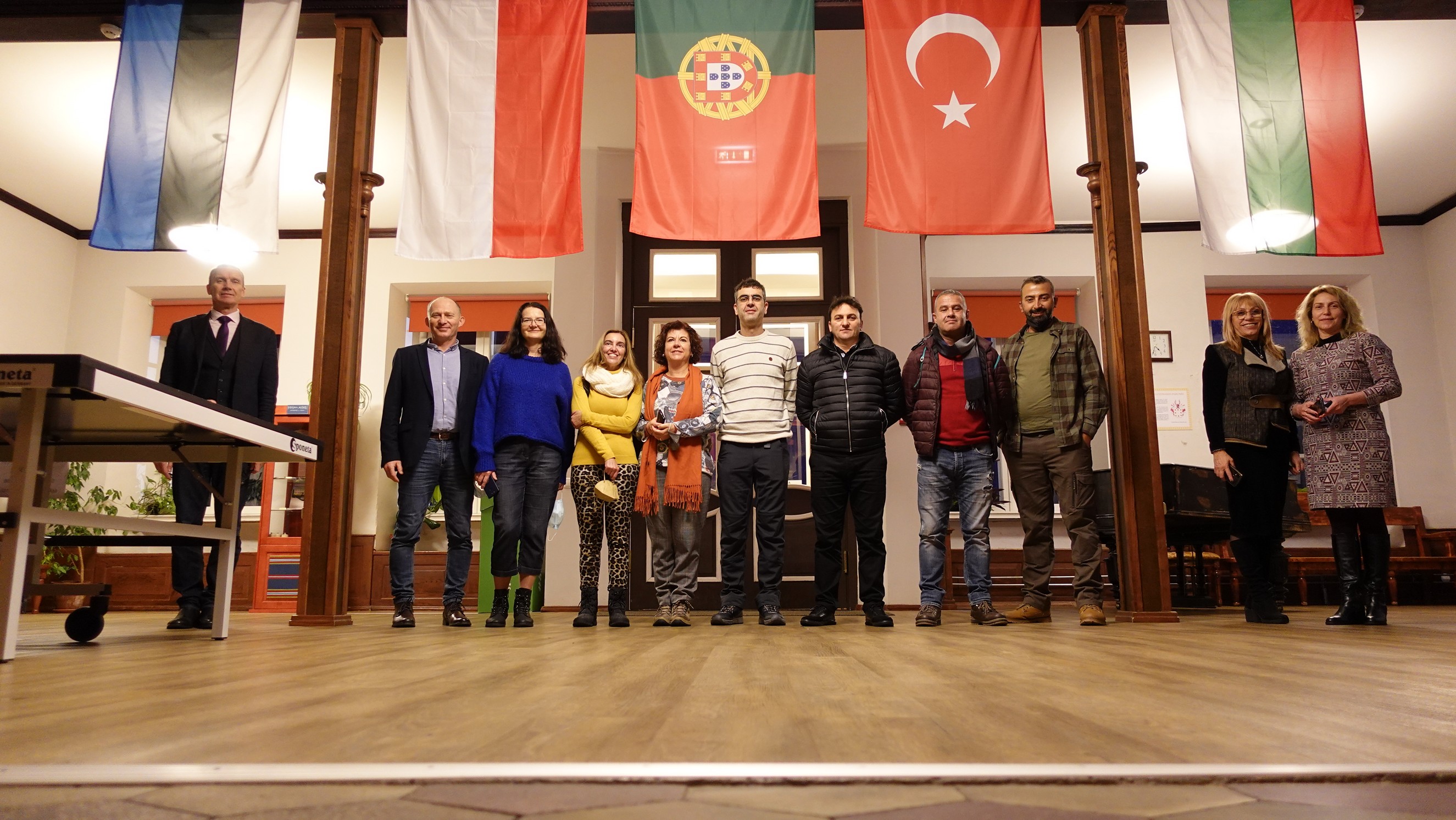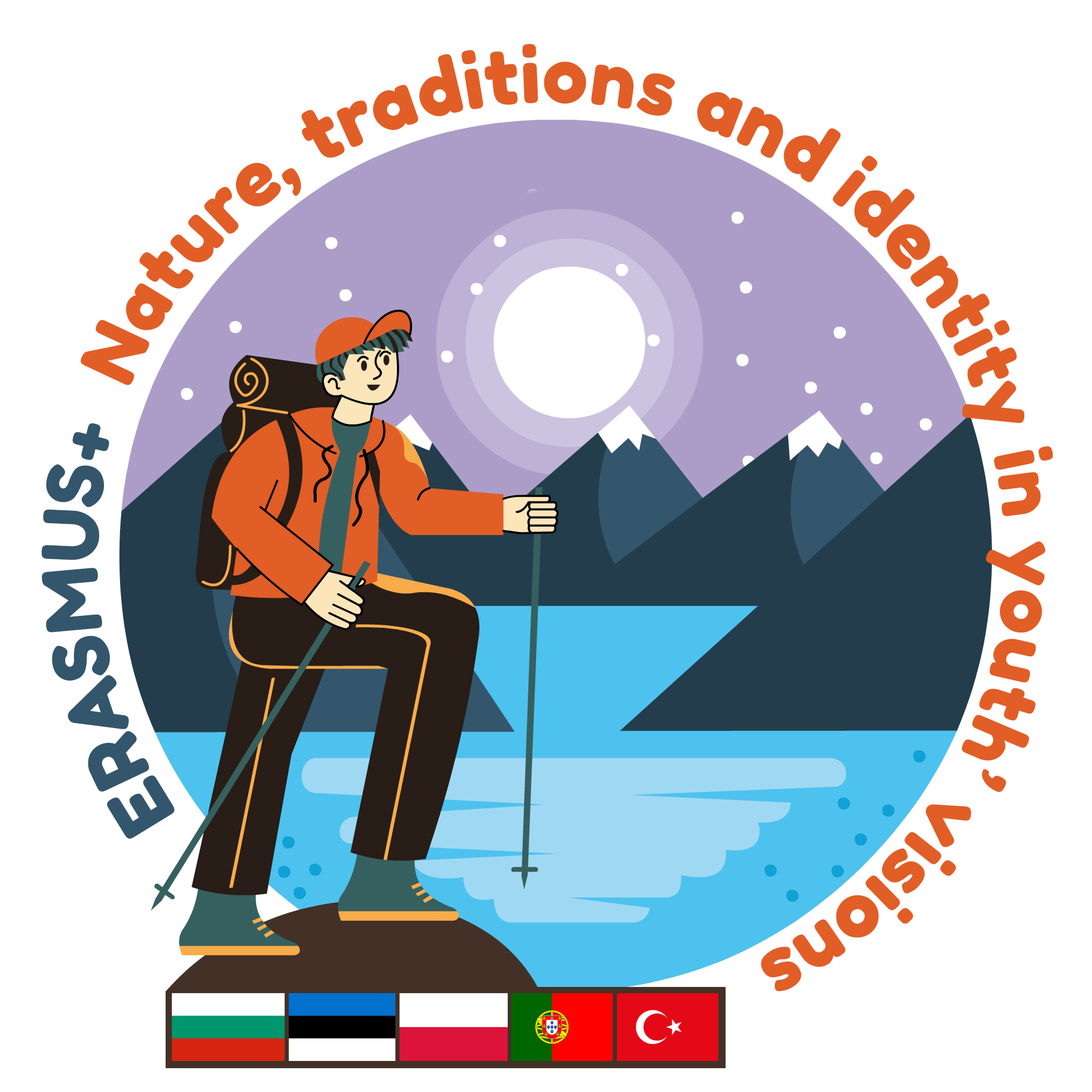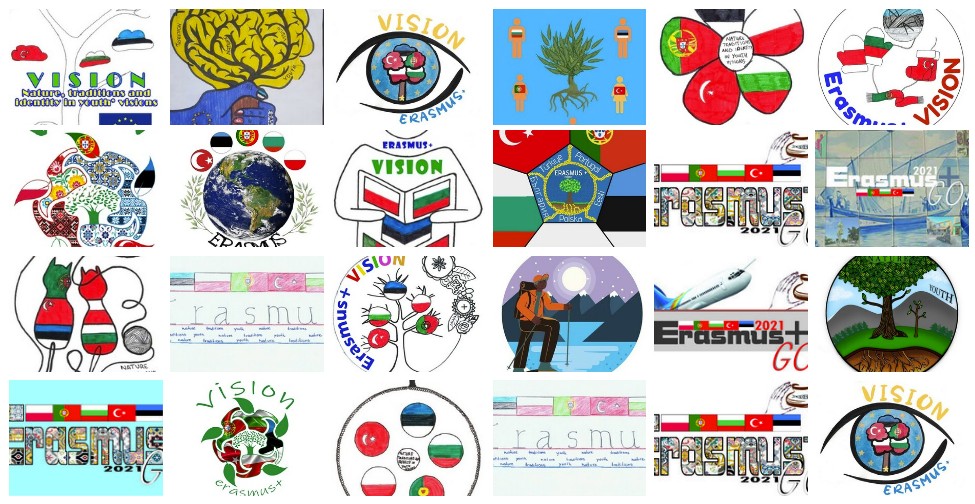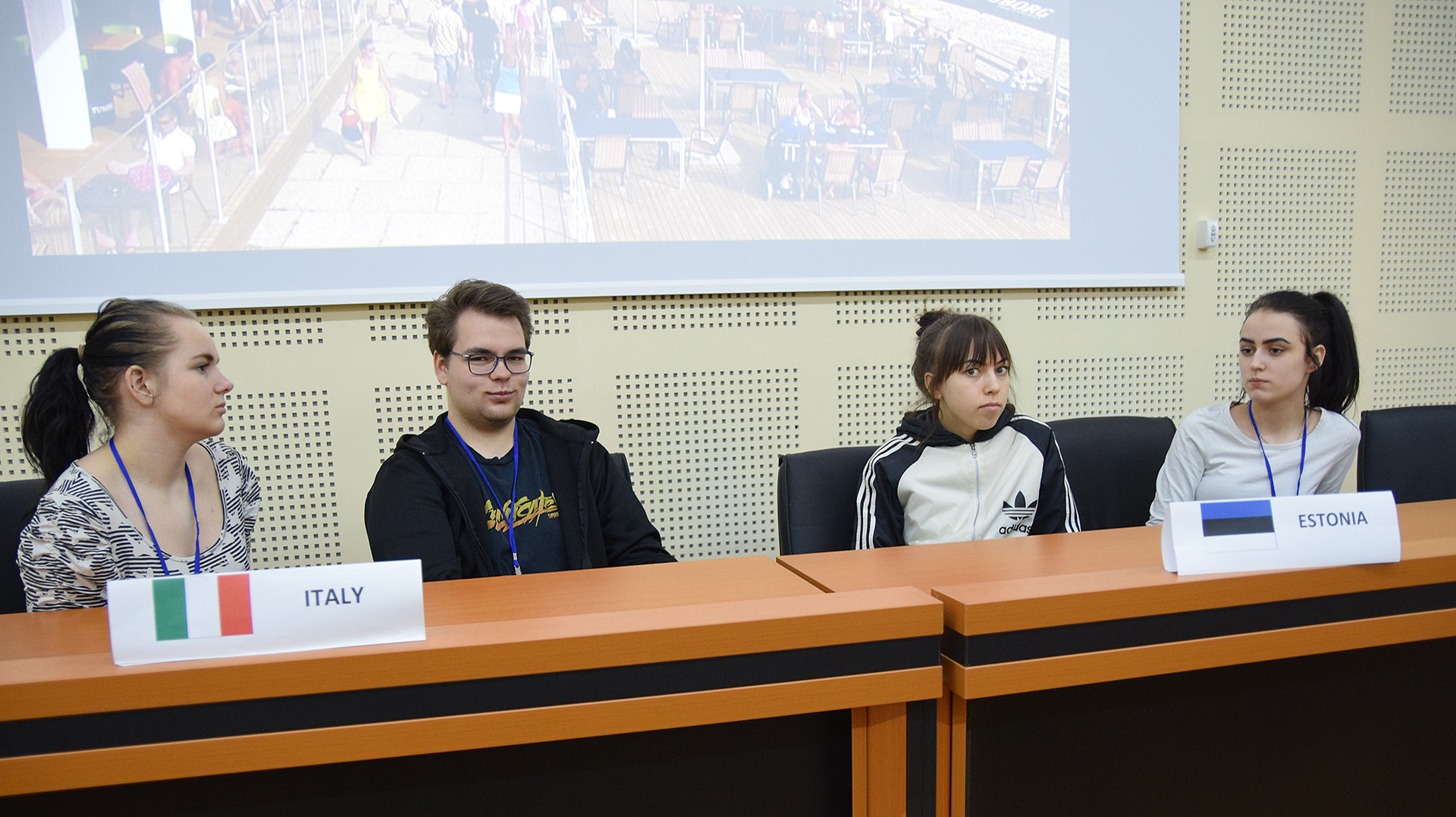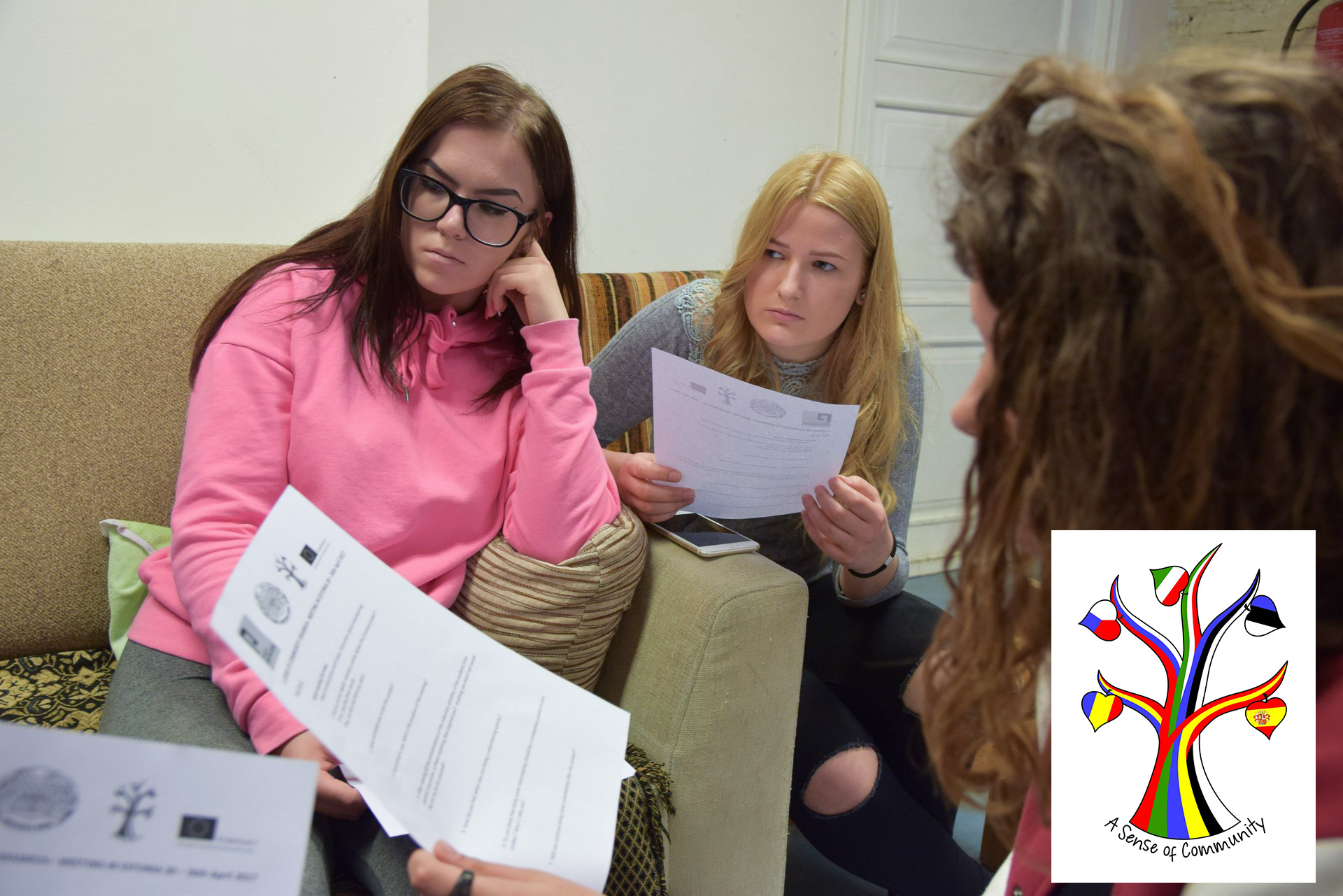 Ontinyent`ist Colegio Pureza de María koolist. Ersamus+ projektinädal möödus teguderohkelt
Ontinyent`ist Colegio Pureza de María koolist. Ersamus+ projektinädal möödus teguderohkelt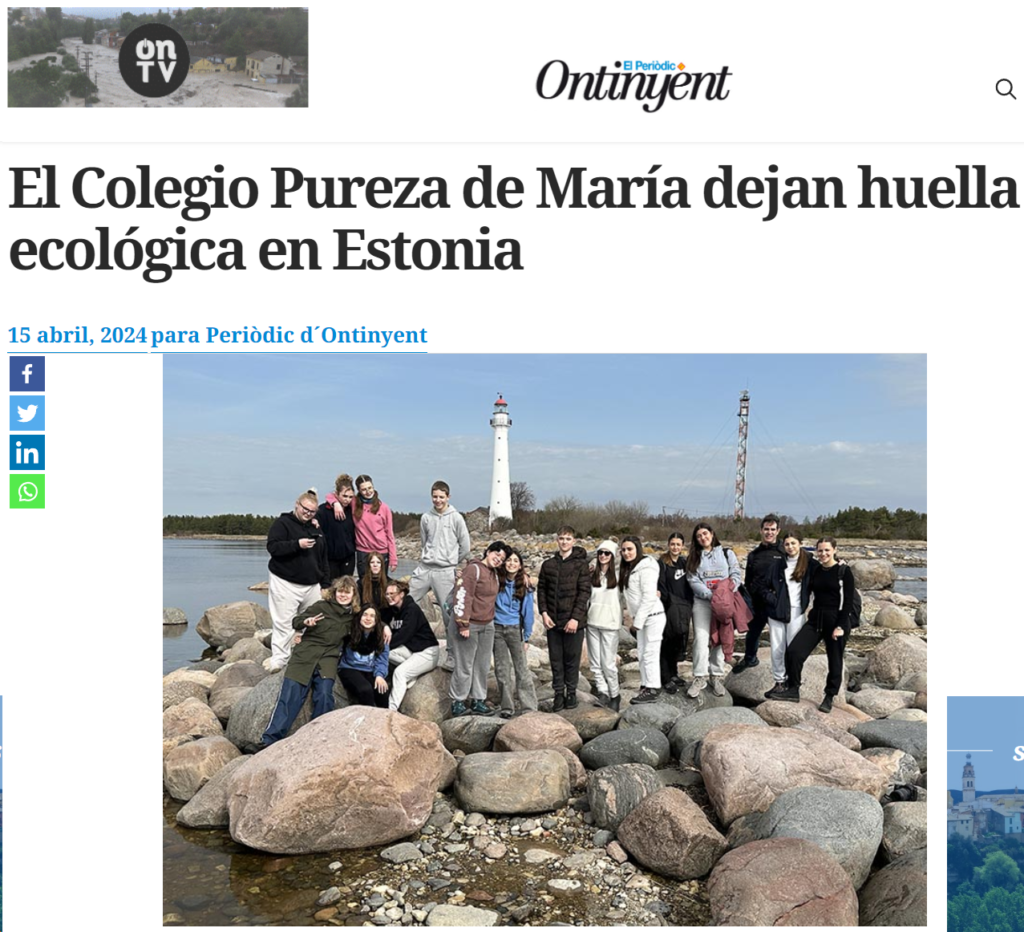
2020 – 2023 Erasmus+ projekt VISION
Tõstamaa Keskkooli algatatud projekt “VISION – Nature, traditions and identity in youth’ visions” (VISION – Loodus, traditsioonid ning identiteet noorte nägemuses”) keskendub seoste loomisele looduse, traditsioonide ja identiteedi vahel. Seoste loomiseks viiakse koostöös projektipartneritega Poolast, Bulgaariast, Türgist ja Portugalist läbi loovad käsitöökursused, kus õppijad tutvuvad kohaliku piirkonna taimede ja materjalidega, kohaliku käsitöötraditsioonidega, piirkondlike ajaloosündmustega ning sellega kuidas traditsioonid on seotud looduse ja kogukonnaga. Läbi oma kodukoha looduse ja kultuuri tundmaõppimise leitakse elemente, mis mõjutavad selle kogukonna ning noorte endi identiteeti. Projekti tulemustena oskavad osalejad kirjeldada seda, mis on erilist nendes endis ja kodukohas. Õppijad teavad kuidas looduskeskkond mõjutab käsitööd, traditsioone ning arusaama iseendast.
PROJEKTI KODULEHEKÜLG: https://erasmusvision.wordpress.com/
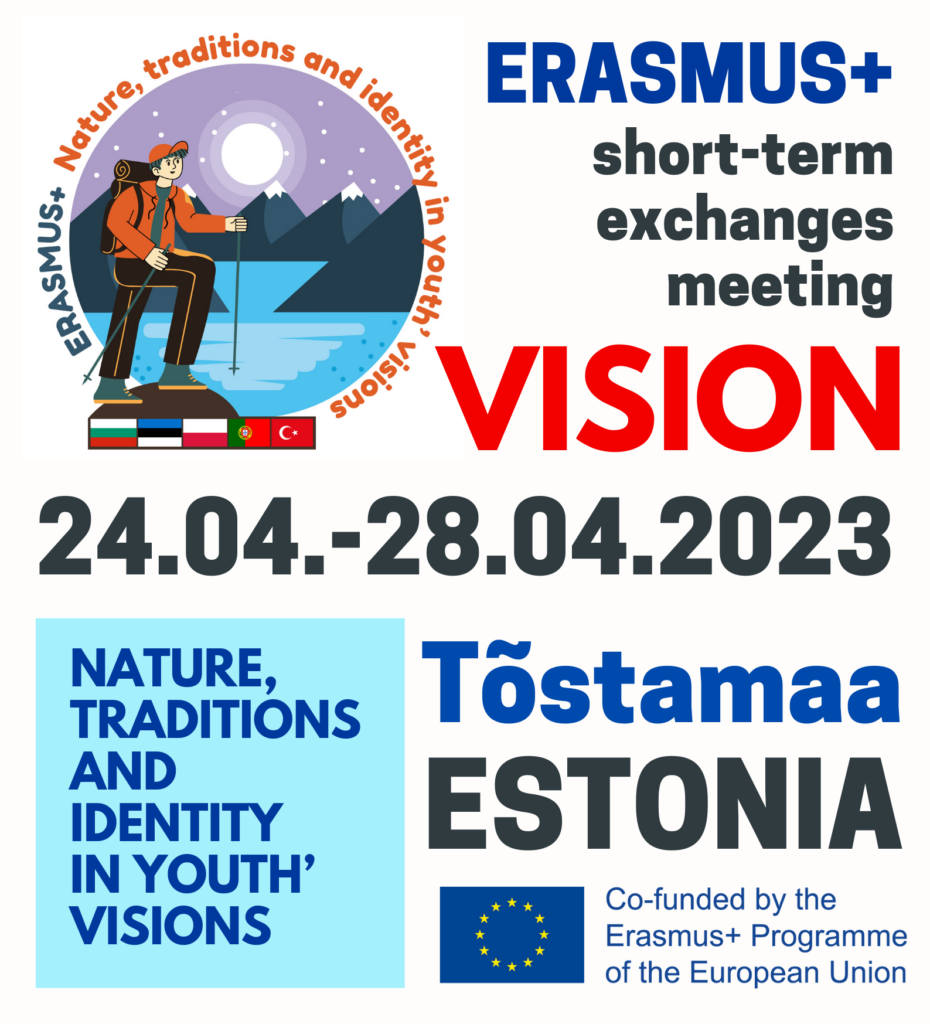
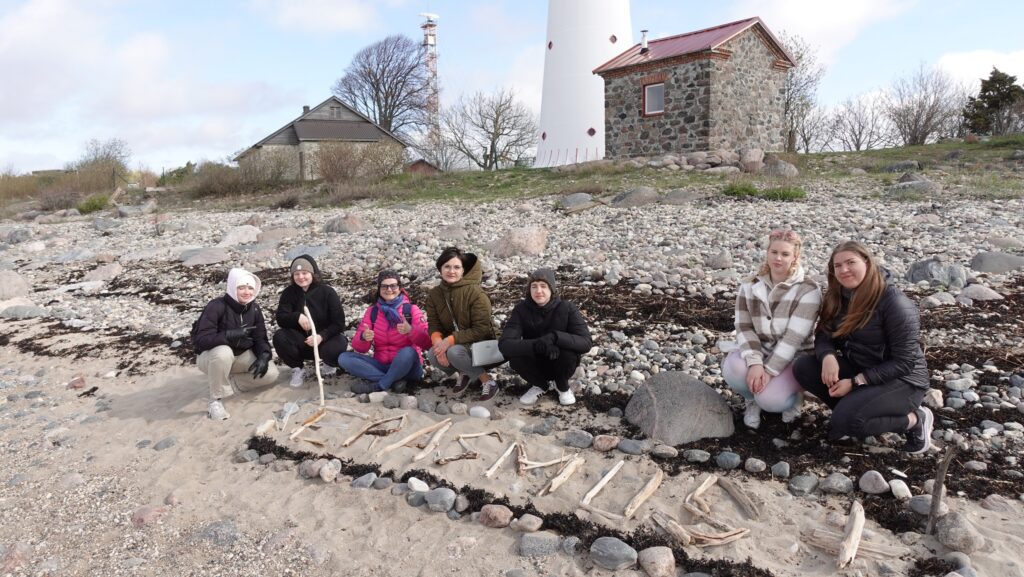
Esitlused:
Razlogi kohtumise pildid: http://pildid.tostamaa.ee/2023/erasmus_razlog/
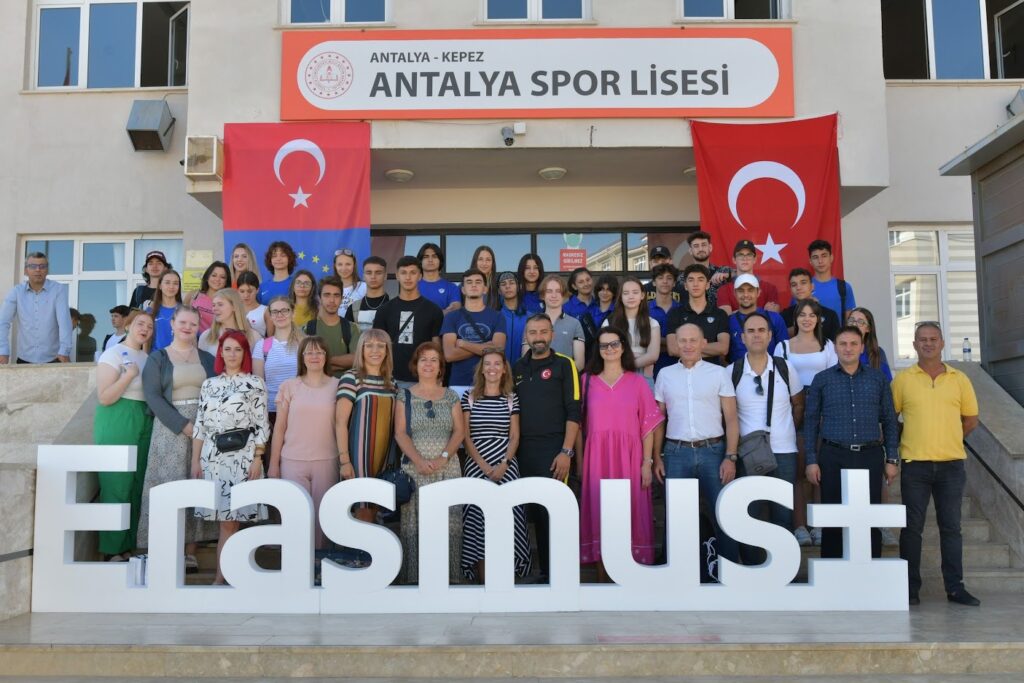
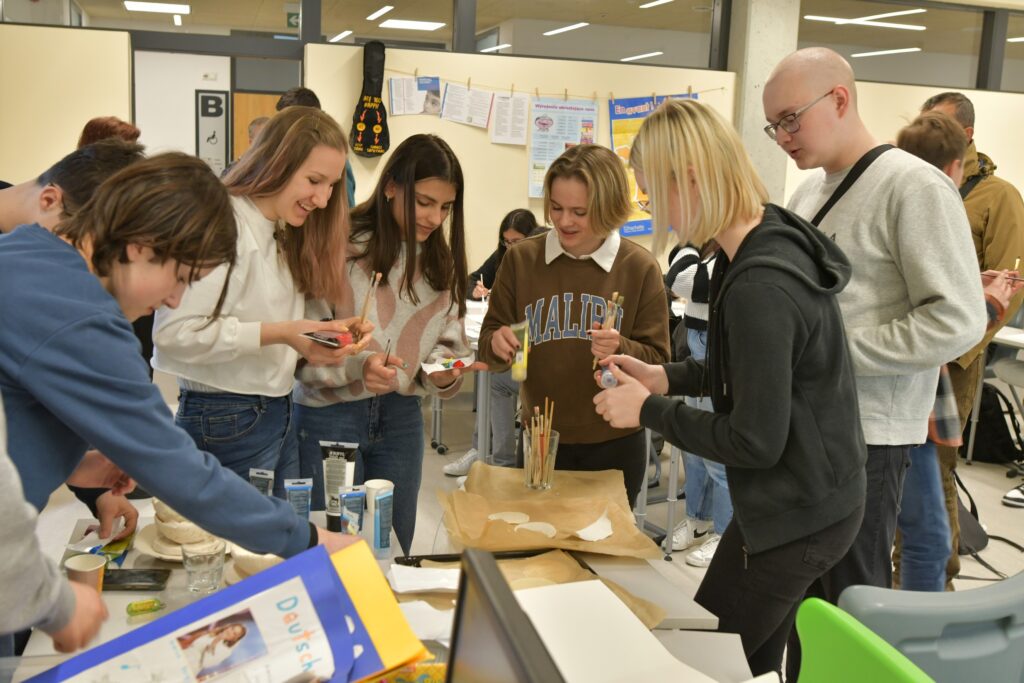
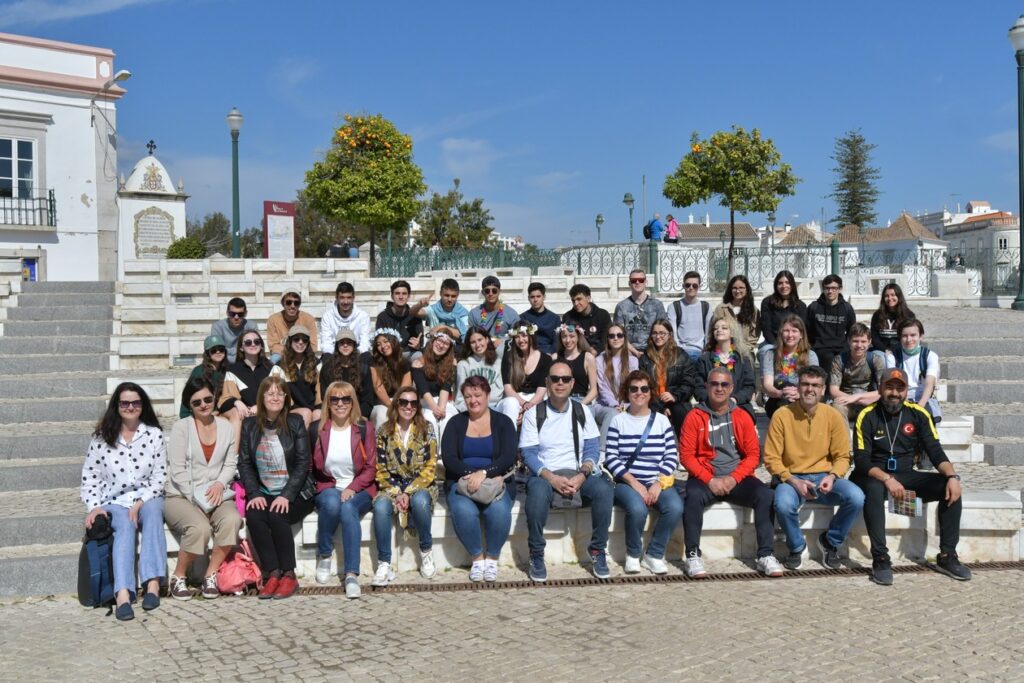
Partnerkoolide õpetajad meie koolil külas 28.10 – 02.11.2021
Projektikohtumise video
Pildid (kliki pildil):
LOGO KONKURSS
Ajavahemikul 07.12 – 20.12.2020 toimus logo konkurss, kus kõikidel huvilistel (õpilased, õpetajad, vanemad ja kogukonna liikmed) oli võimalus valida endale meelepärane logo, mis võiks edaspidi esindada rahvusvahelist koolide koostööprojekti: VISION – Nature, traditions and identity in youth’ visions”. Logo konkurssi võitis Paulina Romaniecka Poolast.
“Nature, traditions and identity in youth’ visions”
Traditions and local culture are more valued all over the world. In the process of globalization are people started to notice and value the things which are rare and special for small groups of people. Old traditions are less practiced, and people start to forget and loose old skills which made them different from other people. People all over the world are used to consume a lot and with growing demand and this has led most of the countries in Europe and world to actual and critical problem: climate catastrophe. Different reports and researches show and pinpoint the need to make quick changes in people behaviour in their everyday life to avoid the climate catastrophe, but not only. There is an urgent need to take steps to save the old traditional pieces of every culture which gives to every region its authentic identity.
Our main aim is to analyse those connections and to help to teach pupils in our schools to see the connections between themselves with old traditional culture and nature. Objectives of the project are to implement creative study courses of traditional handicraft and to show how different items of handicraft are made. During every such course will be followed all steps from finding material, preparing it, making the handicraft product, using it, and analysing this in context of local environment. Main questions are how one or another tradition is related with local nature and what kind of identity it gives to people.
Main target group of the project will be pupils who are growing in a world of globalization and modern technology. Our aim is to show and relate their identity with local authentic culture and local nature. Age of the pupils will be 12-18 who have already the basic knowledge of nature, culture, history, and nature. One criteria of selection of pupils is interest to handicraft. Another target groups will be pupils’ parents, local communities, and local stakeholders.
Project is planned to implement transnationally because it is important to show how similar people are from country to country as humans but how nature and culture makes them different. Every partner will have different nature and related handicraft culture. In transnational project meetings will be organized previously mentioned handicraft courses which help to see, learn, and understand how nature and culture is related and what kind of impact it has to people.
Main activities during the project will be:
1. Preparing and implementing one transnational meeting which include handicraft course (every partner will have different material. For example, Estonia will have wool and knitting, Portugal ceramics and tile painting, Bulgaria yarn and leather, Poland ceramics and paintning, Turkey carpet knitting and coppersmith)
2. Between the meetings other partners study same material and its usage in their home region, learn and prepare handicraft products
according to their culture and present their products in the meetings. Those developed products could be later used in local communities as gift or souvenir products. All the process will be studied and analysed in context of local nature and culture.
3. In the end of the project will be prepared five tutorials how to design and prepare local handicraft product in connection with local culture and nature.
4. According to the activities will be compiled toolkit with teaching material, guidelines, and analyses how to use handicraft in teaching the nature and culture. Relevant topics and additional output of the project will be developed awareness and increase of knowledge and skills in following fields: culture and creativity, identity, nature and environment, basic skills, language and communication skills, teamwork and organizational skills, presentation skills, technology, and entrepreneurship. There will be another important additional input to school’s development in long-term perspective: new and innovative ideas to improve everyday classroom work at school, increase of job satisfaction and motivation, growth of tolerance, new opportunities to find friends and partners for new initiatives.
Project results will be used continuously in further classroom work in such subjects like art and craft classes, biology and geography, history, technology, society studies and etc. Produced materials will be good basis to work with topics of environment, history, handicraft technology, local identity, and history. Tutorials and analysis will be accessible online and available to other interested schools and teachers. More information about the project is available on partner school webpage and project webpage.
Partner Organisations:
E10159915 Tõstamaa Kool Estonia
E10050633 SU Bratya Kanazirevi Bulgaria
E10176101 ANTALYA SPOR LISESI Turkey
E10096871 Agrupamento de escolas Francisco Fernandes Lopes Portugal
E10148671 Zespół Szkół Ogólnokształcących nr 8 Poland
Tõstamaa Keskkool osales 2016 – 2018 Erasmus+ projektis
A SENSE OF COMMUNITY
Projekti kodulehekülje leiab siit…
Projekti töökoosolek Hispaanias
https://youtu.be/8J8yGG7qK6U Kajastus Pärnu Postimehes: https://parnu.postimees.ee/4502378/tostamaa-opilased-jagasid-andaluusias-toiduabi
Kajastus Pärnu Postimehes: https://parnu.postimees.ee/4502378/tostamaa-opilased-jagasid-andaluusias-toiduabi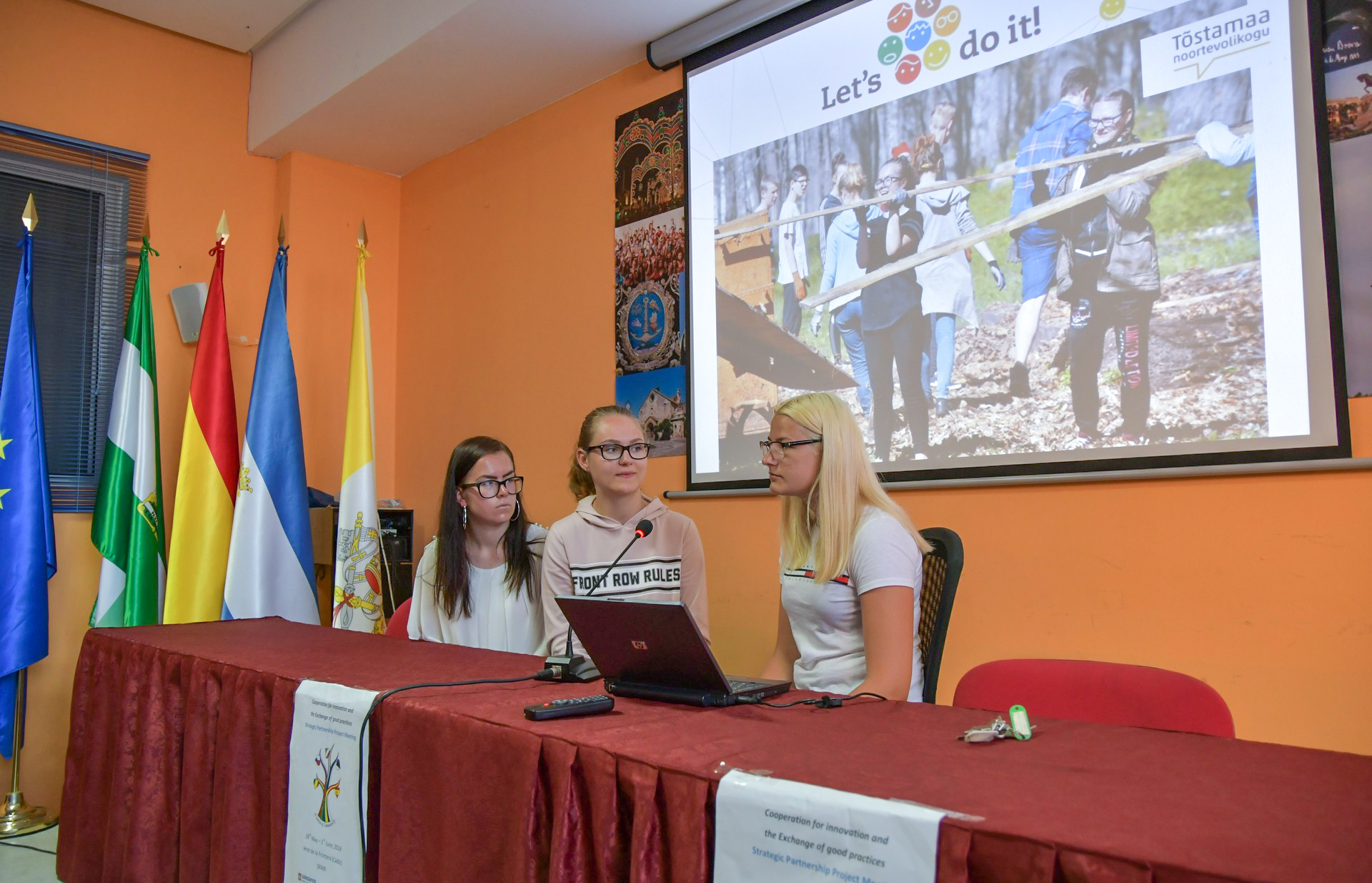 Projektikohtumise pildid: http://pildid.tostamaa.ee/2018/jerez/
Projektikohtumise pildid: http://pildid.tostamaa.ee/2018/jerez/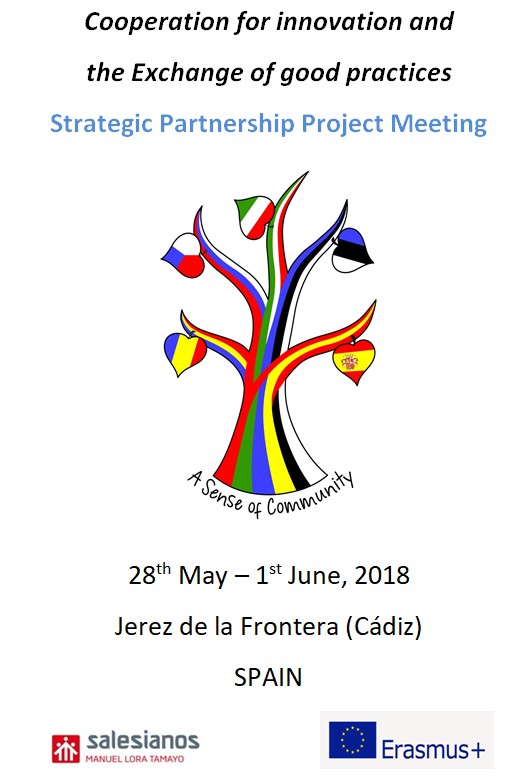
Rumeenias 01.02 – 05.02.2018 toimunud projektikohtumise video
Rumeenia pildid: http://pildid.tostamaa.ee/2018/barlad/
https://www.youtube.com/watch?v=EHUBWM5guEw&feature=youtu.be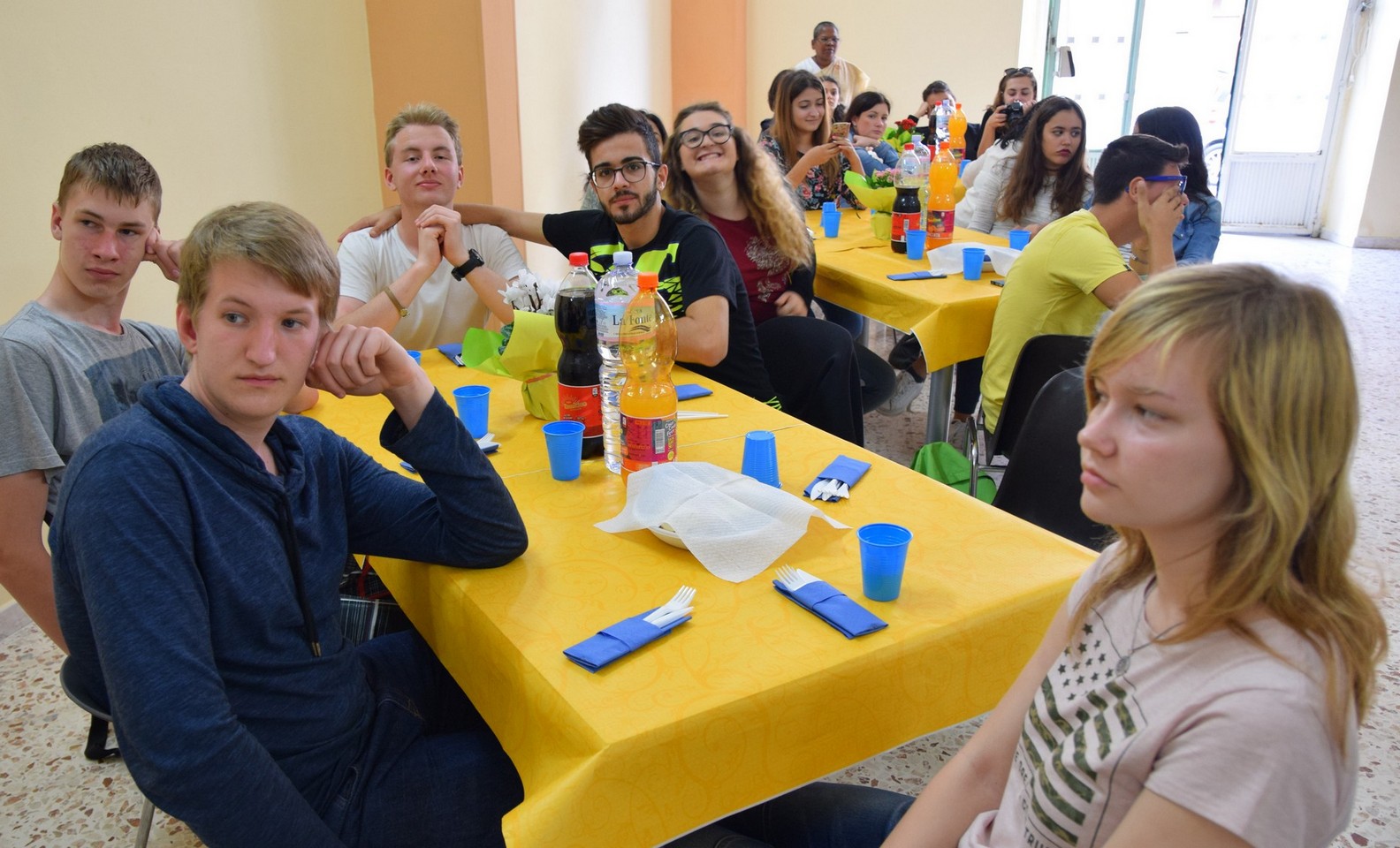
Kooli esindus, kuhu kuulusid õpilased Keily, Oskar, Kristjan, Jonathan ja direktor Toomas, osalesid 15.-22.10.2017 Itaalias, Sitsiilias, Avola linnas Erasmus+ projekti “A Sense of Community” kohtumisel. Pildid…
Väga tore ja tegus nädal meie, Itaalia, Hispaania, Rumeenia ja Tsehhi noorte projektikohtumisega on mööda saanud. Pilte näeb siin...
Cooperation for innovation and the exchange of good practices project
01.09.2016 – 31.08.2018
A Sense of Community
The main objectives of this project is:
Introducing/Promoting the phenomenon of volunteering and community work into school environment and, eventually, making it a formal part of curriculum; and, through these, eliciting /creating a better sense of community in (primarily) high school pupils, but also their parents, siblings and peers (hereinafter referred to as “significant others”) and, last, but not least, in the teachers of all partner educational institutions.
We believe that today, volunteering and active involvement in everyday life of the immediate community of everyone of us is immensely important. They belong to a crucial set of skills that a European citizen needs to do well in life and to be a good, active and responsible citizen, who is able to take initiatiative and actually make a difference.
Indeed, it is indifference and unawareness that seem to be one of the most burning issues of todays community life and society as a whole. Computerization, smartphones and social networking websites brought a lot of improvement to our life, however, paradoxically, they often make people more individualist and lonelier; inevitably, they “steal” and consume time people could spend together.
We think that volunteering is a phenomenon that, in most countries, is still rather underdeveloped, especially in the countries applying for this project. For example, according to the recent studies, in the Czech republic 29% of the population have taken part in some sort of voluntary activity (so called formal volunteers, those non formal are hard to include in any kind of statistics)
http://www.dobrovolnik.cz/informace/dobrovolnik-vzacny-druh/
In Estonia 31 % of population were involved in some sort of voluntary activity. http://www.vabatahtlikud.ee/
These numbers do not seem bad, still, there is a lot of potential in this area, which needs to be more developed and introduced to youth to raise awareness and commitment to development of local communities and social cohesion. Therefore, it is very desirable, almost an obligation and a mission to introduce this topic at this level (high schools) and encourage significant others to join and try various forms of activities find out which ones work the best for the particular school.
Today’s Romania faces some serious social problems like poverty and unemployment, which fully applies to the area of our Romanian partner school, so the issues of community and volunteering are very relevant and fundamental.
The Italian school is located in a coastal area and they have recently witnessed a tragedy concerning the emerging migration phenomenon – this is directly connected with the topic of our project.
The Spanish school already has some experience with volunteering, which could be helpful for the other partners.
Thus, another motivation of our Erasmus+ project is to bring a collective awareness to the pupils and school communities that are part of the project to recognize themselves as European citizens with their unique, specific culture, language and customs, but also linked together geographically, culturally and socio-politically.
In conclusion, all of the issues to be addressed by this project will gain a collective and intercultural dimension, being treated as a multidisciplinary matter in collaboration with other European countries. At the same time, it will promote to the students the importance and values of social and educational relationship and increase their motivation to learn a different language as well. Moreover, this project is necessary for our students to acquire a common sentiment on the importance of successful communication among each other, and more importantly, communication with their surrounding community – young children, the middle aged, the elderly, people from NGOs and those in charge of voluntary and charitable activities.
We are all highly motivated and well prepared to start this project and bring a theme to the understanding of each school community of our European partners, but mostly to the people in training, our pupils/students.

